12 Common Bass Fishing Myths That Need To Disappear
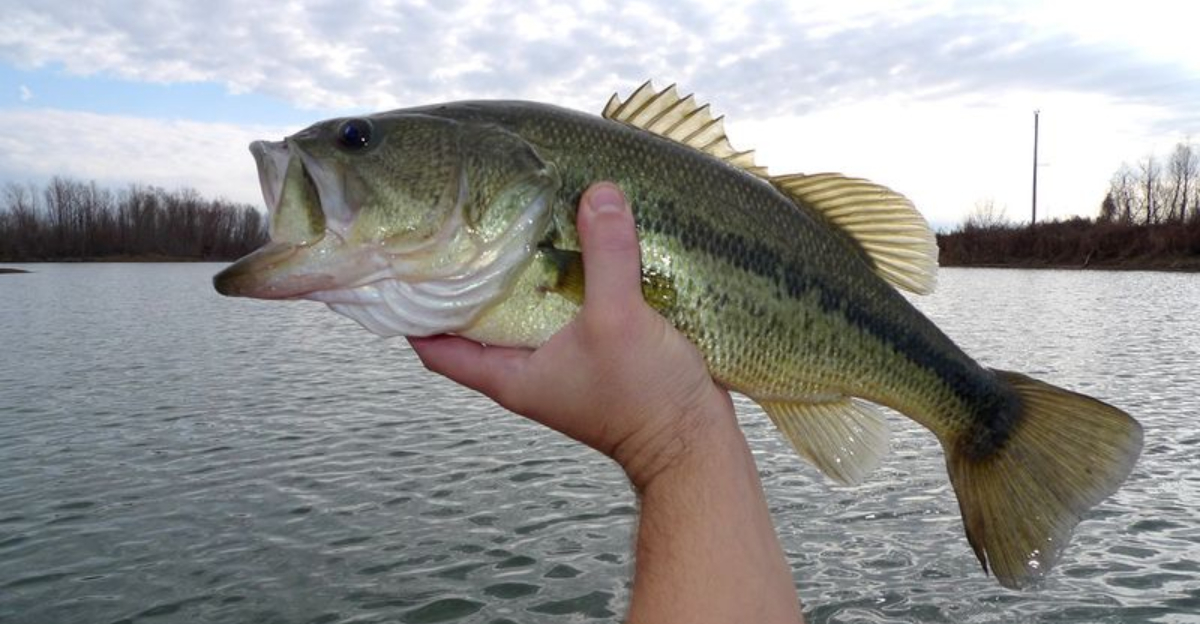
Bass fishing is one of America’s favorite outdoor activities, but it’s also filled with misconceptions that can hurt your chances of landing that trophy catch.
I’ve spent countless hours on the water testing these so-called ‘fishing facts’ only to find many are completely false. Let’s bust these common myths so you can spend less time following bad advice and more time reeling in bass.
1. Bass Only Bite During Specific Times Of Day
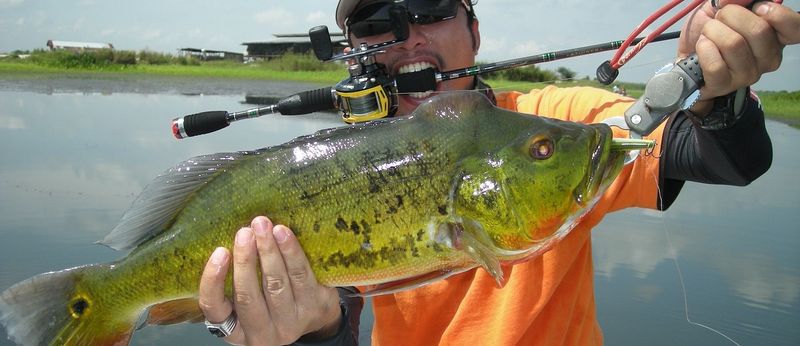
Many anglers pack up when the sun gets high, believing bass only feed at dawn and dusk. While these periods can be productive, bass actively hunt throughout the day.
Weather conditions, water temperature, and available food sources influence feeding patterns more than the clock. I’ve caught some of my biggest bass under the blazing midday sun when everyone else had left the lake.
2. Bigger Lures Always Catch Bigger Bass
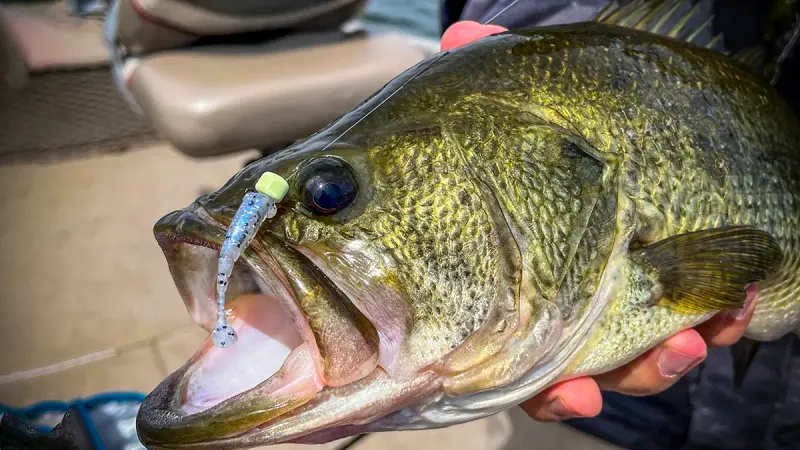
The oversized lure philosophy has misled countless anglers. Trophy bass frequently strike smaller offerings, especially when feeding on minnows or shad.
Bass select prey based on energy efficiency, not just size. A 3-inch swimbait might outperform a 10-inch model on any given day. My personal record largemouth was caught on a tiny 2.5-inch jerkbait while others nearby used giant swimbaits with no success.
3. Bass Won’t Bite In Cold Water
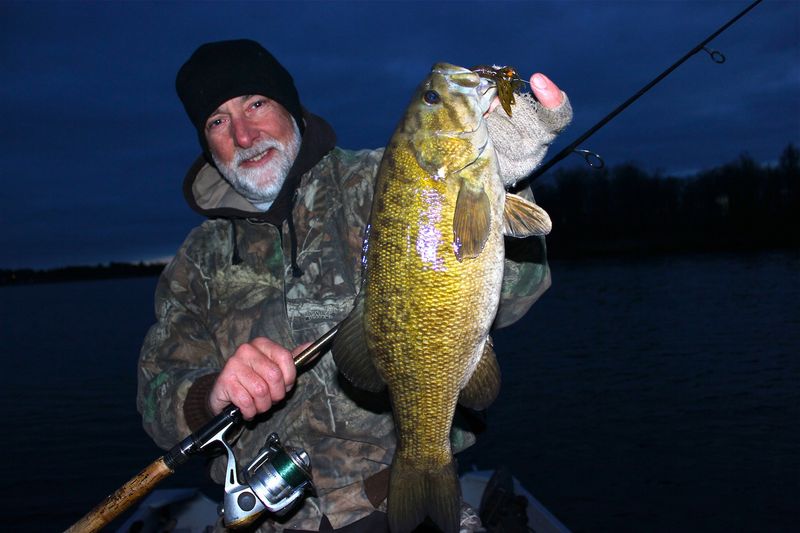
Winter fishing gets a bad reputation, but bass remain active even in chilly conditions. They simply adjust their behavior and location.
Cold-water bass move slower and prefer deeper areas with structure. Slow-moving presentations like jigs and suspending jerkbaits can be deadly effective. Last January, I landed seventeen bass in 42-degree water while fishing deep rocky points with a finesse jig.
4. You Need Expensive Gear To Catch Bass
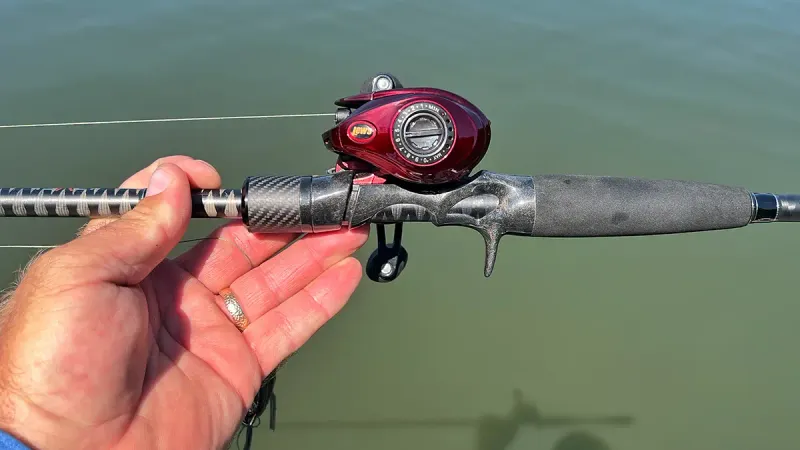
Marketing hype suggests only premium equipment leads to fishing success. This couldn’t be further from truth.
Basic, affordable rods and reels paired with fundamental knowledge about bass behavior will outfish expensive setups in unskilled hands every time. My fishing buddy consistently outfishes gear snobs with his $60 combo because he understands seasonal patterns and reads water effectively.
5. Bass Won’t Strike The Same Lure Twice
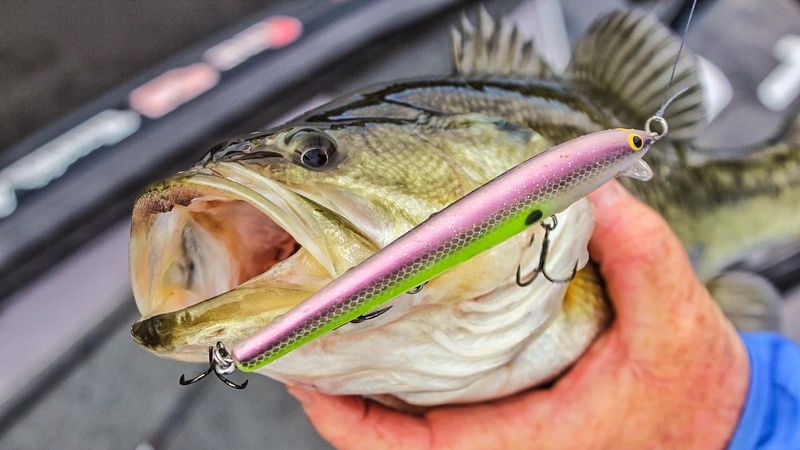
Conventional wisdom says bass learn to avoid lures they’ve encountered before. Research and experience prove otherwise.
Bass have limited memory capacity and primarily respond to instinct. A lure that triggered a strike yesterday will likely work today if conditions remain similar. Tournament anglers frequently catch multiple fish from the same spot using identical lures over consecutive days.
6. Full Moons Make Bass Impossible To Catch
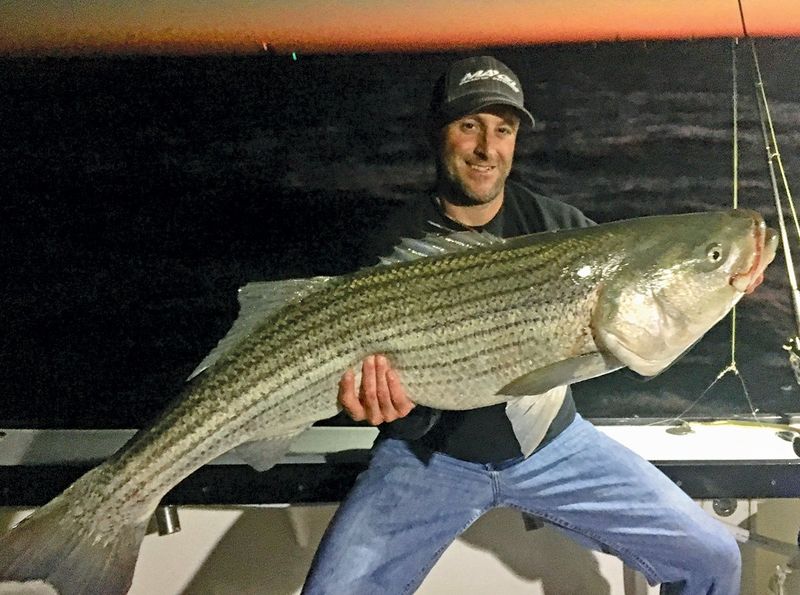
Many anglers avoid fishing during full moons, believing bass feed exclusively at night during these phases. Scientific evidence doesn’t support this claim.
While lunar phases may influence behavior somewhat, factors like weather fronts and water temperature have far greater impact. Some of my most productive trips have occurred during full moons, especially when fishing early mornings around shallow cover.
7. Bass Only Live In Certain Types Of Lakes
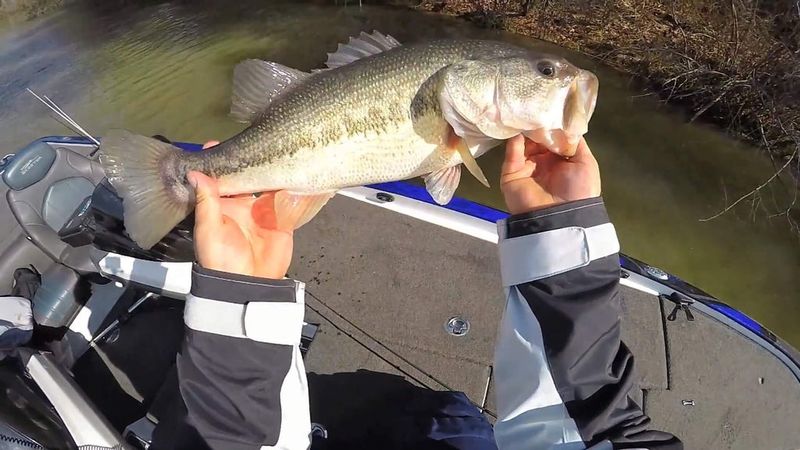
The myth that bass thrive exclusively in clear, vegetation-rich waters persists among many anglers. Bass are incredibly adaptable predators.
From murky farm ponds to crystal-clear mountain reservoirs, bass populations flourish across diverse habitats. I’ve caught trophy-sized bass from chocolate-colored rivers, tiny urban ponds, and even brackish coastal waters where conventional wisdom said they shouldn’t exist.
8. Rain Always Ruins Bass Fishing
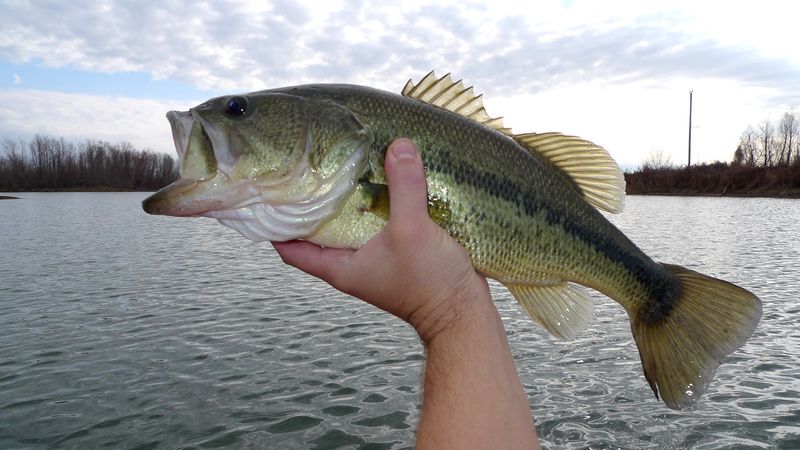
Rainy days send many anglers home early. Smart fishermen know precipitation often triggers feeding frenzies.
Rain increases oxygen levels, washes food into the water, and reduces visibility, giving bass a predatory advantage. Some of my most memorable fishing days happened during steady rainfall. Last spring, I landed 23 bass during a three-hour downpour using a spinnerbait along flooded shorelines.
9. Bass Won’t Hit Topwater In Bright Sunlight
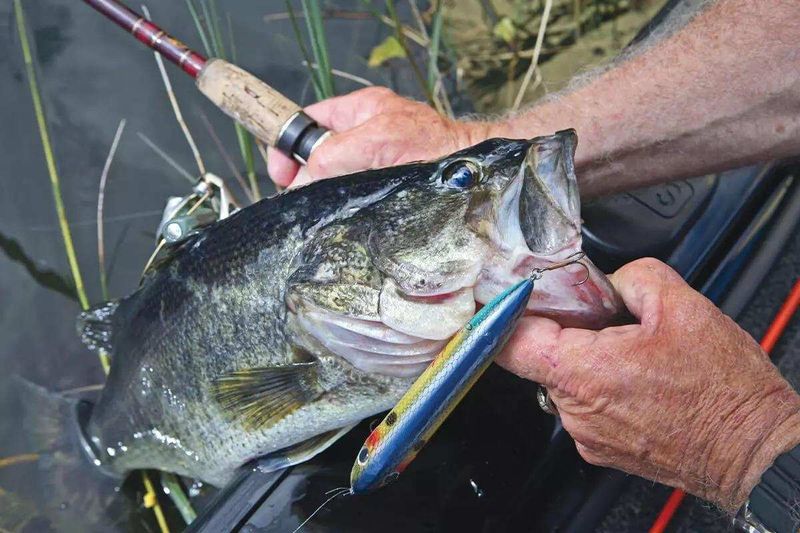
Conventional wisdom suggests topwater lures only work in low-light conditions. Experience proves this dramatically wrong.
Bass readily attack surface baits throughout the day, especially around shaded areas or when targeting schooling fish. My biggest topwater explosion ever came at 1:00 PM on a cloudless summer day when a 7-pound largemouth demolished my walking bait next to a partially submerged log.
10. You Can’t Catch Bass In Clear Water
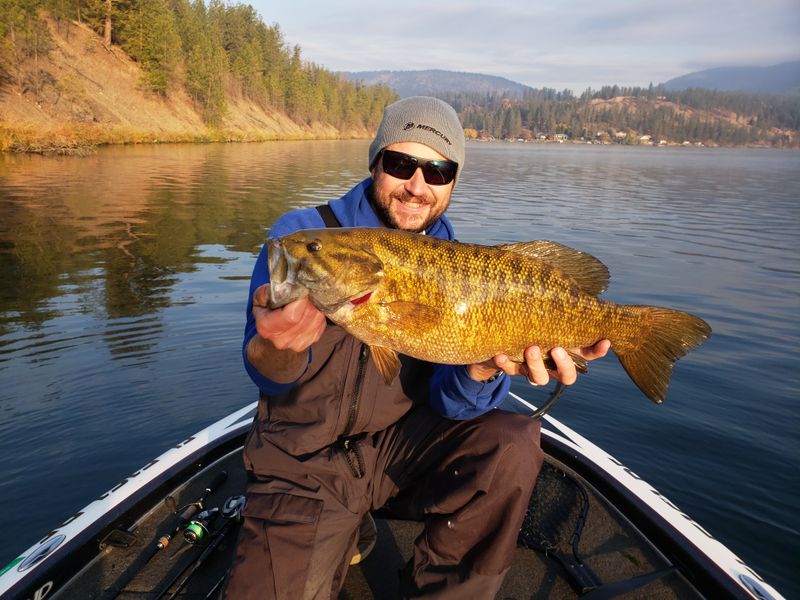
Many anglers avoid gin-clear lakes, believing bass are too spooky. Clear water actually offers unique advantages.
Visibility allows bass to spot lures from greater distances, extending your effective fishing zone. The key is using lighter line, natural colors, and staying back from your target area. My personal best smallmouth came from a lake with 15-foot visibility using an almost invisible fluorocarbon leader.
11. Bass Always Prefer Live Bait Over Artificial
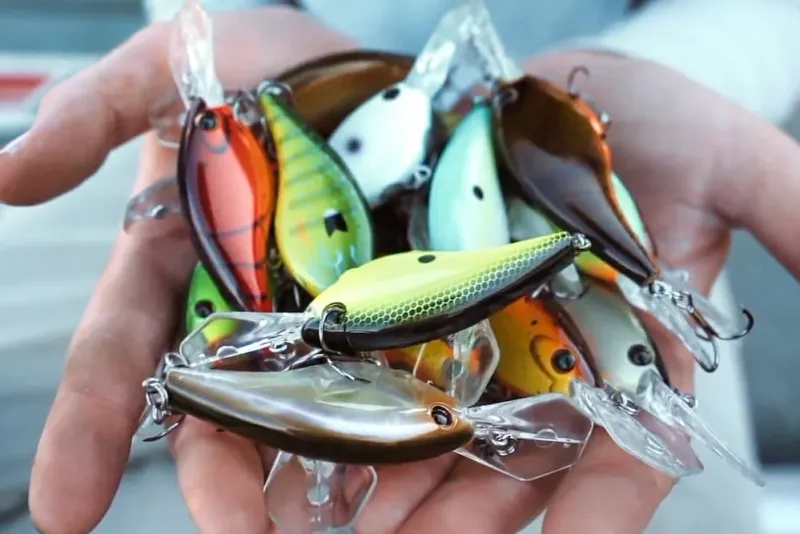
The belief that nothing beats live bait has prevented countless anglers from exploring artificial lures. Tournament results consistently disprove this myth.
Modern artificial baits often outperform live options through better action, durability, and targeting capability. Professional anglers win millions using exclusively artificial presentations. During a recent club tournament, artificial lures accounted for all top five finishes despite several competitors using shiners.
12. Bass Only Feed When Conditions Are Perfect
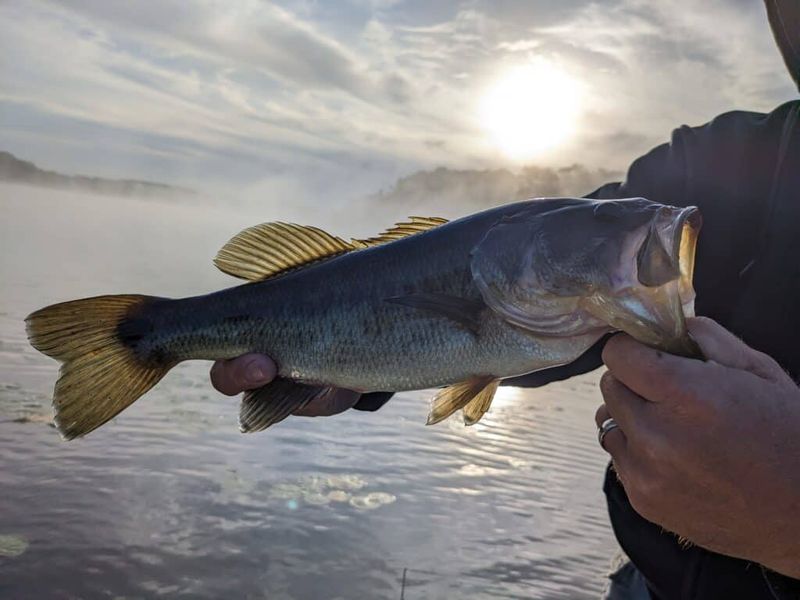
The “perfect conditions” myth keeps too many anglers off the water. Bass must eat regardless of conditions.
While changing weather, barometric pressure, and water clarity influence behavior, bass adapt rather than stop feeding entirely. Modifying your approach to match conditions is the real secret. Some of my most productive days happened during supposedly “terrible” conditions when I had lakes entirely to myself.






